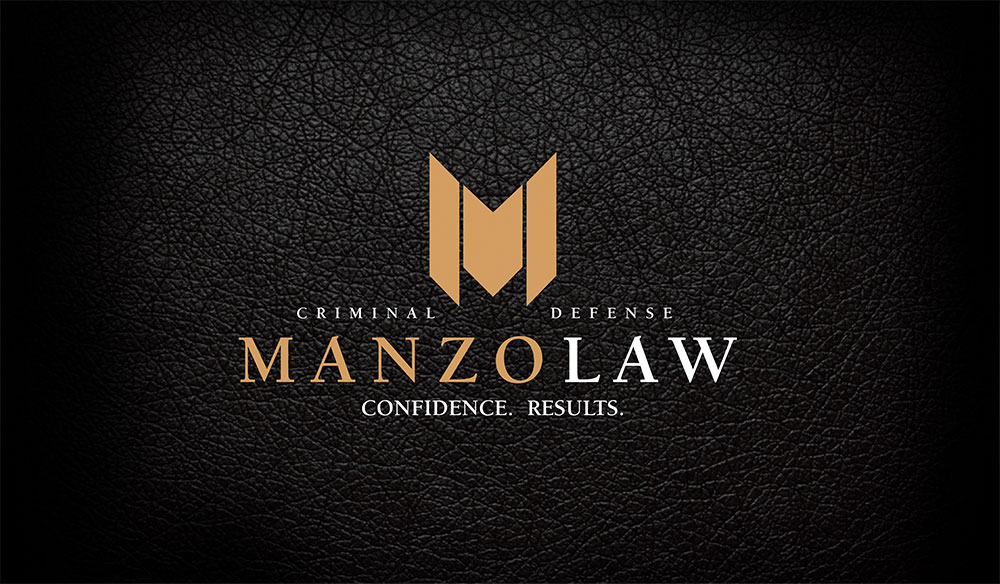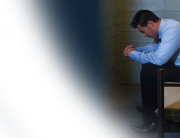News
GTA
Critics decry secretive discipline system for Crown attorneys
Crown attorneys’ courtroom conduct highlights lack of transparency in disciplinary process.
Toronto Crown attorney Sunita Malik was found to have made as many as five errors in her closing address to the jury at a murder trial. (SYSTEM)
‘Justice has to not only be done, but seen to be done.’ And the idea that people are being disciplined and sanctioned in private is a silly idea when it’s being done to lawyers,” said Osgoode Hall Law School professor Allan Hutchinson. (SARAH DEA / Sarah Dea)
Toronto Crown attorney Sunita Malik was found to have made as many as five errors in her closing address to the jury at a murder trial. (SYSTEM)
‘Justice has to not only be done, but seen to be done.’ And the idea that people are being disciplined and sanctioned in private is a silly idea when it’s being done to lawyers,” said Osgoode Hall Law School professor Allan Hutchinson. (SARAH DEA / Sarah Dea)
By Jacques GallantStaff Reporter
Sat., Sept. 24, 2016
The government’s secretive discipline system for Crown attorneys is again being called into question following recent criticism from the Court of Appeal of two Crown attorneys’ courtroom conduct.
In one case, Brampton Crown attorney David D’Iorio introduced hearsay evidence and improperly cross-examined the accused, which ultimately led to Ontario’s top court ordering a new trial.
In the other matter, Toronto Crown attorney Sunita Malik was found to have made as many as five errors in her closing address to the jury at a murder trial. But the appeal court declined to order a new trial, finding the judge’s instructions to the jury on Malik’s mistakes were sufficient.
“It would attract attention and scrutiny from the Law Society, if it was done by a defense lawyer,” said Criminal Lawyers’ Association president Anthony Moustacalis of Malik.
D’Iorio’s conduct would also potentially attract attention from the regulatory body “because you’re supposed to know what the law is and conduct yourself in a competent fashion,” Moustacalis said.
The Law Society cannot ever confirm or deny that it is investigating a lawyer. Both D’Iorio and Malik declined to comment through a spokesman for the Ministry of the Attorney General.
The CLA has complained for years about what the organization sees as a lack of investigation by the Law Society into Crown attorneys’ conduct and a lack of public discipline hearings for them — the kind of hearing any other lawyer in Ontario must face when slapped with discipline charges.
Defense lawyers have noted that some of their colleagues have been disciplined in public for fairly minor conduct, including being rude and discourteous to other lawyers and in court.
Moustacalis said the Law Society has previously told the CLA that a main consideration is the fact that the Crown attorneys’ employer — the Ministry of the Attorney General — already has an internal discipline process.
But as noted by a previous Star investigation in 2014, the Ministry’s process is secretive, and the government was unable to say at the time how many complaints have been lodged against the province’s nearly 1,000 prosecutors and how many had been recently disciplined for misconduct.
In contrast, lawyers who have gone through a public discipline hearing is then the subject of a public ruling by the Law Society Tribunal, allowing anyone to see what penalty, if any, the lawyer was given.
The Law Society has disciplined prosecutors in the past, although it was unable to provide the number of cases this week. Moustacalis said those cases are generally instances where a prosecutor has already been found guilty of criminal conduct.
“We are aware of the recent court decisions that you referred to,” said Law Society spokeswoman Susan Tonkin. “When there are allegations and evidence of a breach, the Law Society investigates and, if the evidence warrants, takes disciplinary action, which is public.”
A Ministry of the Attorney General spokesman said that aside from falling under the jurisdiction of the Law Society, Crown attorneys are also subject to internal Crown policies and practices.
“I can tell you that the Ministry takes judicial rulings very seriously and is careful to monitor the quality of its prosecutions and conduct of Crown counsel,” said spokesman Philip Klassen. “To that end, Crown counsel are held to the highest standard and are expected to conduct themselves professionally and fairly at all times.”
He said concerns about a Crown attorney’s conduct are referred to their supervisor, and that remedial and disciplinary action is considered where appropriate.
“The mere fact that (prosecutors) are lawyers means they are responsible to the Law Society and the Law Society has full powers over prosecutors in the same way as any other lawyer, and so I really don’t get the idea that this is somehow something special,” said Osgoode Hall Law School professor Allan Hutchinson.
“To use a phrase that lawyers often like to say, ‘Justice has to not only be done, but seen to be done.’ And the idea that people are being disciplined and sanctioned in private is a silly idea when it’s being done to lawyers.”
D’Iorio’s conduct at the trial of Bickramjit Dhaliwal — who was convicted for possession of guns and drugs and public mischief — “deprived the appellant of a fair trial,” a three-judge panel of the Court of Appeal found in August, ordering a new trial, which could potentially cost tens of thousands of dollars.
During a recess before D’Iorio resumed his cross-examination of the final defense witness, he placed a long-distance call to the husband of the accused’s niece, Parminder, who was not set to testify. He made the call on the courtroom phone with the speaker on.
Although the jury and the defense witness were not present, lawyers, the accused and observers were in the courtroom. D’Iorio then used information gathered from the call to assist him in his cross-examination of the witness, Bakshish, sister to the accused.
Chief Justice George Strathy, on behalf of the panel, wrote that if the Crown wanted to obtain information from Parminder to help with his cross-examination, he should have made the call outside the courtroom and then disclosed it to the defence.
“This not only introduced hearsay to the jury, possibly serving to undermine Bakshish’s testimony, it put the Crown’s own credibility at issue,” Strathy wrote.
“It is impossible to say what the effect of this conduct was on the jury’s assessment of Bakshish’s credibility. What can be said is that it fell short of the standard expected of the Crown.”
In another case decided in August by the Court of Appeal, Malik, the Toronto Crown attorney, was found to have displayed conduct that was “disturbing” in her closing address at the murder trial of Jimmy John.
John was ultimately convicted by a jury of second-degree murder, and the trial judge dismissed the defence’s application for a mistrial.
His appeal lawyer, James Lockyer, had argued in his factum at the Court of Appeal that Malik had committed similar errors in her closing address at another trial, but this was not mentioned in the Court of Appeal’s ruling in the John case.
“In my opinion, the trial Crown fell below the expected standard of propriety and fairness conduct in this case. I find two aspects of her conduct disturbing,” wrote Court of Appeal Justice Robert Sharpe for the panel in the John case.
“The first is the number of transgressions. This is not a case where the Crown slipped and stepped over the line on one occasion. The trial judge found it necessary to give corrective instructions on five different points. My second concern is that the Crown’s improper conduct targeted fundamental procedural rights of the appellant.”
Criminal defense lawyer John Struthers said transparency is key if the government were to take remedial or disciplinary action against a Crown attorney, given that they are public officers.
“The scales of justice are a balance and the open and public disciplining of lawyers should also be balanced,” he said.
“When they are not, the defence feels the chill. Defend ‘too hard,’ (and) you’ll be hauled up in public, but prosecute ‘too hard’ and not to worry.”
Courtroom errors
The Court of Appeal found Sunita Malik made several errors in her closing address to the jury:
She “strongly suggested” that John, who had testified on his own behalf, had tailored his evidence after hearing the Crown’s case against him. (Malik later denied in court that this was her intention.) The court said this violated a well-established principle that prohibits allegations that an accused has tailored their evidence after receiving evidence from the Crown, which is their constitutional right.
She misstated evidence in relation to one of the Crown’s witnesses.
She misstated the evidence in relation to another witness and invited the jury to speculate on his actions at the murder scene.
The court found Malik attempted “to diminish or minimize the concept of reasonable doubt and the onus of proof on the Crown,” when she stated to the jury:
“It is a standard of proof which applies to each and every person charged with a criminal offence in Canada, and as I am certain that you all know, using the same standard, hundreds, if not thousands of people are convicted of criminal cases every year, so it is clearly not an insurmountable burden.”
The court concluded she “belittled” the standard of reasonable doubt.
During her address, Malik asked court staff to lower the lighting in the courtroom in an attempt to explain why one Crown witness may have wrongly described the shooter’s hat. The high court found this was “clearly an inappropriate attempt” to lead evidence, saying there was nothing to suggest that the lower lighting in the courtroom was similar to the lighting at the crime scene.
Toronto Star Newspaper Ltd.
© Copyright Toronto Star Newspapers Ltd. 1996 – 2016
Privacy PolicyTerms and Conditions




Leave A Comment